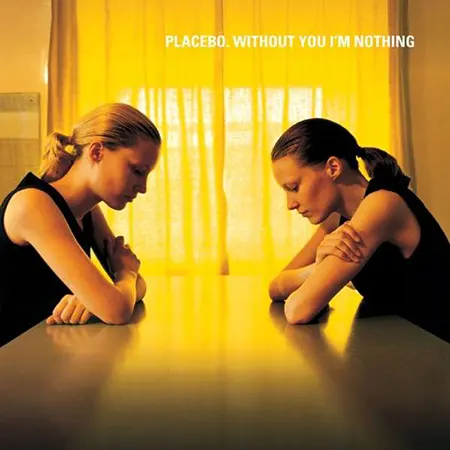Placebo: The Androgynous Sound of Alternative Rock
Placebo. Forming an Identity in the Shadows
When Placebo emerged from the London alternative scene in 1994, they brought with them an aura of darkness, ambiguity, and glam-infused rebellion. The band was founded by Brian Molko (vocals, guitar) and Stefan Olsdal (bass, keyboards), both of whom had a vision that contrasted sharply with the Britpop-dominated UK rock landscape of the time. Placebo’s sound—marked by Molko’s distinctive nasal vocals, open emotionalism, and gritty guitar textures—immediately set them apart.
Brian Molko’s androgynous appearance, lyrical themes revolving around identity, drug use, alienation, and love, and a musical approach that embraced both melody and dissonance gave Placebo a distinctive edge. Their image was provocative and deliberately non-conformist, aligning more closely with glam rock’s subversive lineage than the then-mainstream rock bands.
Breakthrough with the Self-Titled Debut (1996)
Placebo’s eponymous debut album, released in 1996, was an immediate success. Singles like “Nancy Boy”, “Teenage Angst”, and “36 Degrees” struck a nerve with young fans seeking raw, unfiltered emotion in their music. “Nancy Boy,” in particular, became a queer anthem with its unapologetic lyrics about sexual ambiguity, earning both praise and controversy.
The album’s blend of raw punk energy, grunge’s angst, and goth-inspired aesthetics resonated with a generation disillusioned with traditional pop idols. Critics noted Placebo’s ability to merge confrontational themes with catchy hooks, crafting music that was as emotionally volatile as it was accessible.
“Without You I’m Nothing” (1998): A Darker Turn
Their sophomore album, “Without You I’m Nothing,” released in 1998, solidified Placebo’s reputation as one of the most emotionally intense bands of the decade. The album was darker, more introspective, and richer in texture than their debut. Songs like “Pure Morning”, “Every You Every Me”, and the haunting title track explored obsession, loneliness, and vulnerability.
A notable moment in the band’s career was their collaboration with David Bowie, a long-time supporter, who performed a duet version of the title track. Bowie’s endorsement not only validated Placebo’s artistry but also drew attention from a broader audience, including fans of glam and art rock.
Experimentation and Expansion (2000s)
Placebo’s third album, “Black Market Music” (2000), saw the band blending electronics and hip-hop influences into their sound. Though critics were divided on the album’s genre-blurring direction, it showed that Placebo was not content with repetition. Tracks like “Special K” and “Taste in Men” retained the band’s confrontational edge while exploring new sonic territories.
With “Sleeping With Ghosts” (2003), Placebo introduced a more electronic and polished sound. Themes of memory, pain, and fleeting relationships were examined through a dreamlike lens. Songs like “The Bitter End” and “Special Needs” became fan favorites, balancing melancholic lyrics with propulsive energy.
“Meds” (2006): A Return to Rawness
With “Meds,” Placebo returned to a more guitar-driven sound, stripping back some of the gloss of previous albums. Produced by Dimitri Tikovoi, the album was a raw, urgent examination of addiction, instability, and fractured relationships. Songs like “Infra-Red”, “Because I Want You”, and the title track pulsed with a nervous energy, echoing the band’s early days.
“Meds” was both a critical and commercial success, especially in Europe, where Placebo had built a strong following. The band’s reputation for emotional authenticity and high-energy live performances kept their appeal strong in the face of changing musical trends.
Placebo. Line-up Changes and Evolution
In 2009, drummer Steve Hewitt departed and was replaced by Steve Forrest, ushering in a new era for the band. That year saw the release of “Battle for the Sun,” which marked a notable change in tone. While still addressing emotional pain, the album had moments of hope and uplift. It was recorded in Toronto and produced by Dave Bottrill, known for his work with Tool and Muse.
The title track, along with singles like “For What It’s Worth” and “Bright Lights,” explored renewal and resilience. While some longtime fans were divided on the more optimistic outlook, the album found success globally and topped charts in multiple countries.
Loud Like Love and Hiatus
“Loud Like Love” (2013) continued Placebo’s musical evolution, incorporating more synth-pop elements and polished production. Songs like “Too Many Friends” and “A Million Little Pieces” delved into themes of digital alienation, emotional exhaustion, and unfulfilled desires.
Though the album received mixed reviews, it maintained the band’s signature emotional intensity. After its release, Placebo took a break from recording new material, focusing instead on touring and celebrating their 20th anniversary with a retrospective compilation and global tour.
Never Let Me Go (2022): A Resurgence
After a long hiatus, Placebo returned with “Never Let Me Go” in 2022—an album marked by political commentary, climate anxiety, and social critique. Singles like “Beautiful James”, “Surrounded by Spies”, and “Try Better Next Time” showed a more mature, world-weary Placebo, still driven by the same emotional charge but now with a sharper critique of contemporary life.
Musically, the album was a return to darker textures and synth-heavy atmospheres, echoing elements of their earlier work while addressing new societal fears. The album was praised for its relevance, depth, and the band’s refusal to play it safe.
Placebo. Legacy and Influence
Placebo’s contribution to alternative rock cannot be overstated. They carved a space for gender fluidity, emotional openness, and gothic aesthetics in a genre that often leaned towards macho posturing. Brian Molko became an icon for many LGBTQ+ fans, and the band’s willingness to speak openly about addiction, mental health, and alienation resonated deeply across generations.
Their influence is felt in bands that followed, from Muse to My Chemical Romance, and in the modern dark-pop movement. Despite changes in trends, Placebo has remained uncompromising, challenging norms and pushing sonic boundaries.
Placebo. Conclusion
Over nearly three decades, Placebo has cultivated a loyal global following by staying true to their core ethos: unfiltered emotion, musical evolution, and defiant individuality. Their music, much like their image, exists in the liminal space between genres, genders, and emotions—an ever-shifting mirror reflecting the beautiful chaos of the human experience.





